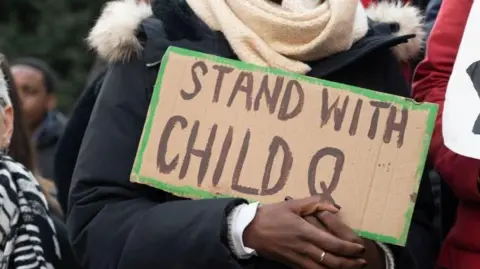- TV
WHO members adopt landmark pandemic agreement in US absence
时间:2010-12-5 17:23:32 作者:Data 来源:Global 查看: 评论:0内容摘要:"We have recently installed a new system at some stores which helps customers using self-service checkouts identify if an item has not been scanned properly, making the checkout process quicker and easier," a Tesco spokesperson said."We have recently installed a new system at some stores which helps customers using self-service checkouts identify if an item has not been scanned properly, making the checkout process quicker and easier," a Tesco spokesperson said.
"At 74, I have lost my way in life," she said, describing the crippling impact of the killings.But she said the action the country needed to take was already obvious to her.

"My daughter was murdered by an unmedicated, chronic schizophrenic... who had in his possession knives designed for killing."[This is] another cry out to an Australia that doesn't seem to want to acknowledge that what happened... is essentially the catastrophic consequence of years of neglect of, and within, our mental health systems."Before the events of 3 December 2024, Lee Jae–myung's path to South Korea's presidency was littered with obstacles.

Ongoing legal cases, investigations for corruption and allegations of abusing power all looked set to derail the former opposition leader's second presidential bid.Then a constitutional crisis changed everything.

On that night, former president Yoon Suk Yeol's abortive attempt to invoke martial law set in motion a series of events that appears to have cleared the path for Lee.
Now, as the Democratic Party candidate, he is the frontrunner to win South Korea's election on 3 June.A decade ago, the state's police were seen as weak, according to Mr Ganapathy.
"Today, precise state-led strikes, backed by central paramilitary forces, have changed the game. While paramilitary held the ground, state forces gathered intelligence and launched targeted operations. It was clear role delineation and coordination," he said.Mr Ganapathy adds that access to mobile phones, social media, roads and connectivity have made people more aware and less inclined to support an armed underground movement.
"People have become aspirational, mobile phones and social media have become widespread and people are exposed to the outside world. Maoists also cannot operate in hiding in remote jungles while being out of sync with new social realities."Without mass support, no insurgency can survive," he says.
- 最近更新
- 2025-07-07 11:06:09Weekly horoscope for June 15-21: Prepare for shocking news and a personal crisis
- 2025-07-07 11:06:09UK to ban Palestine Action, police clash with group’s supporters in London
- 2025-07-07 11:06:09US judge allows company to train AI using copyrighted literary materials
- 2025-07-07 11:06:09What is driving a surge in COVID cases in India, other countries?
- 2025-07-07 11:06:09Israeli strikes kill at least 52 across Gaza as UN demands ceasefire
- 2025-07-07 11:06:09AOLExperts say these are the best sunscreens of the year
- 2025-07-07 11:06:09Pesto and Tomato Grilled Pizza
- 2025-07-07 11:06:09Trump is seeking a quick US exit from Israel-Iran conflict. Will it work?
- 热门排行
- 2025-07-07 11:06:09allow you to adjust your full coverage
- 2025-07-07 11:06:09Europe should not go it alone on defence
- 2025-07-07 11:06:09Tariffs on Canada and Mexico Could Raise Car Insurance
- 2025-07-07 11:06:09The war that will remake Iran’s Islamic republic
- 2025-07-07 11:06:09Rechargeable Waterproof Headlamp Flashlights (two-pack)
- 2025-07-07 11:06:09Stocks, dollar show resilience in Asia as oil gains
- 2025-07-07 11:06:09Caprese Salad With Tomatoes, Basil, and Mozzarella
- 2025-07-07 11:06:09Caitlin Clark points, stats: Indiana Fever star shines in WNBA return
- 友情链接
- Trump and Tehran can still make a deal Advent agrees £4.4bn takeover of London-listed Spectris Next week’s development finance conference in Seville is unlikely to deliver much PM Shigeru Ishiba’s LDP defeated ahead of upper house vote next month The raids attacked research and centrifuge arrays that Tehran has built up over decades Subsidies for locals and tax-free salaries have left region fiscally vulnerable What matters now is Tehran’s response UK output price inflation hits 4-year low, survey shows Could strikes on Iran cause a nuclear disaster? What matters now is Tehran’s response Trump and Tehran can still make a deal End Nato secrecy to convince voters on defence spending, says Lithuania Trump and Tehran can still make a deal The Israel-Hamas war in maps and charts Reform UK policy would transfer money directly to poorest 10% US and Israeli attacks hit key nuclear sites but questions remain over stash of enriched material Self-driving technology on which Elon Musk has staked future of his company debuts in Texas Leaders risk getting into a shouting match with Donald Trump over increased defence spending US bombs nuclear sites in Iran Private equity group KKR trumped by rival bidders in Spectris and Assura deals China needs to take a long-term view and let the renminbi rise FirstFT: Trump raises prospect of ‘regime change’ in Iran Appreciation would suit Beijing’s global ambitions for the currency The raids attacked research and centrifuge arrays that Tehran has built up over decades Farage to offer non-doms £250,000 fee to avoid UK tax for life US bombs nuclear sites in Iran Spain secures opt-out from new Nato spending goal, says Sánchez Could strikes on Iran cause a nuclear disaster? Oman to be first Arab state in the Gulf to levy personal income tax Trump and Tehran can still make a deal
